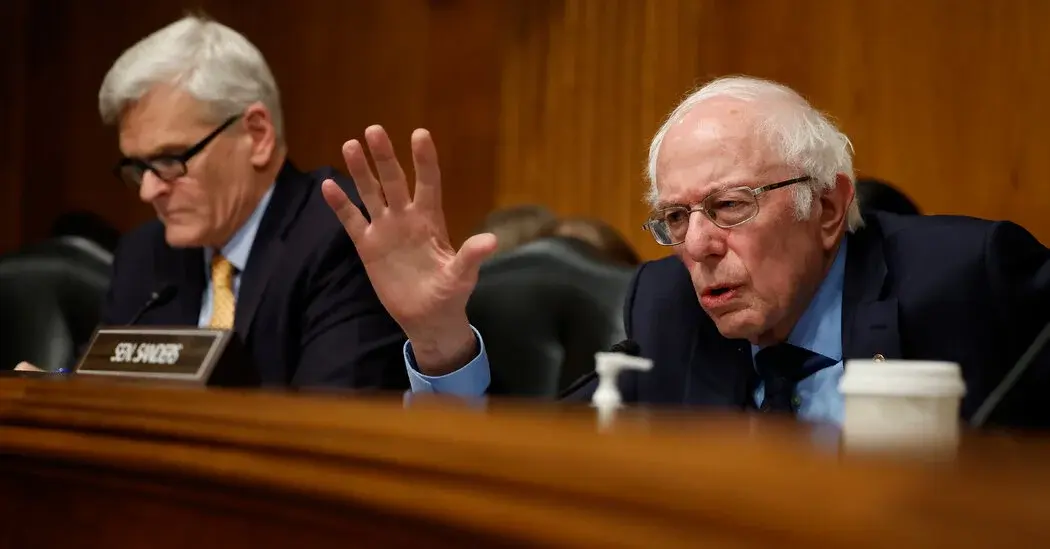- cross-posted to:
- leftism@lemmy.world
- cross-posted to:
- leftism@lemmy.world
Archive link: https://archive.ph/sVDYB
Some key excerpts:
Senator Bernie Sanders this week unveiled legislation to reduce the standard workweek in the United States from 40 hours to 32, without a reduction in pay
The law, if passed, would pare down the workweek over a four-year period, lowering the threshold at which workers would be eligible to receive overtime pay.
Senator Bill Cassidy, Republican of Louisiana, said at the hearing such a reduction would hurt employers, ship jobs overseas and cause dramatic spikes in consumer prices.
Mr. Sanders is far from the first to propose the idea, which has been floated by Richard Nixon, pitched by autoworkers and experimented with by companies ranging from Shake Shack to Kickstarter and Unilever’s New Zealand unit.
Representative Mark Takano, Democrat of California, introduced the 32-Hour Workweek Act in the House in 2021, and has reintroduced it as a companion bill to the one sponsored by Mr. Sanders in the Senate.
In proposing the legislation, Mr. Sanders cited a trial conducted by 61 companies in Britain in 2022, in which most of the companies that went down to a four-day workweek saw that revenues and productivity remained steady, while attrition dropped significantly. The study was conducted by a nonprofit, 4 Day Week Global, with researchers at Cambridge University, Boston College and a think tank, Autonomy.



🤖 I’m a bot that provides automatic summaries for articles:
Click here to see the summary
In a hearing on Thursday before the Senate Committee on Health, Education, Labor and Pensions on the proposed law, Mr. Sanders, independent of Vermont, said profits from boosts in productivity over the decades had been reaped only by corporate leaders, and not shared with workers.
Senator Bill Cassidy, Republican of Louisiana, said at the hearing such a reduction would hurt employers, ship jobs overseas and cause dramatic spikes in consumer prices.
Mr. Sanders is far from the first to propose the idea, which has been floated by Richard Nixon, pitched by autoworkers and experimented with by companies ranging from Shake Shack to Kickstarter and Unilever’s New Zealand unit.
But the concept has gathered steam in recent years, as the Covid-19 pandemic has caused fundamental shifts in work culture and reset expectations about employment.
Representative Mark Takano, Democrat of California, introduced the 32-Hour Workweek Act in the House in 2021, and has reintroduced it as a companion bill to the one sponsored by Mr. Sanders in the Senate.
Juliet Schor, an economist at Boston College who was the lead researcher on the study, testified at Thursday’s hearing that 91 percent of the companies that switched to a four-day workweek had stuck with the new arrangement a year later.
Saved 61% of original text.